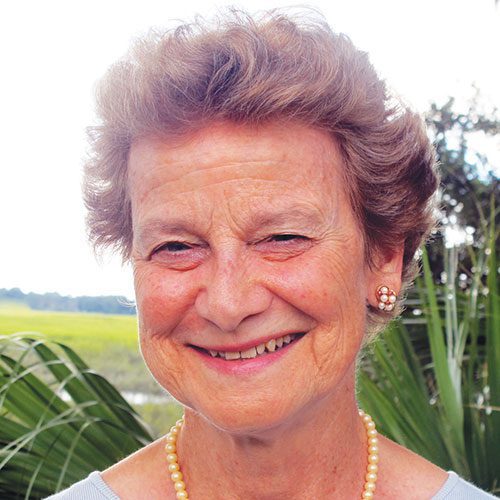No matter your spiritual or religious bent, it’s that time of year again, rife with elaborate decorations, parades, Santa sightings, window candles, yummy baked goods, menorahs, kinaras, and jolly greetings all around. You may already know the three religions associated with those references, but just in case you don’t, following is a quick primer.
Because it may be the newest celebrated and the least familiar, let’s begin with Kwanzaa. This holiday was created in 1966 in the aftermath of the Watts riots as a non-Christian holiday dedicated specifically to African Americans and their heritage, culture, and unity. The word Kwanzaa is Swahili for “first,” signifying the first fruits of the harvest and giving thanks for good fortune.
Transpiring from December 26th to January 1st, the holiday focuses on the Seven Principles: Unity, Self-determination, Collective work and responsibility, Cooperative economics, Purpose, Creativity, and Faith. Seven candles represent the Seven Principles in a joined candelabrum reminiscent of a Jewish menorah. In the middle, one black candle stands for unity, three green candles on the right, for the earth, and three red candles on the left represent the struggle of African Americans or the shedding of blood.
Although the giving of gifts was not initially emphasized during Kwanzaa, now many African Americans celebrate Kwanzaa and Christmas, complete with presents.
Hannukah is Judaism’s Festival of Lights, fending off the season’s chill with warm flames. The fete was begun to celebrate the Maccabees’ victory over the Syrian Greeks in 164 BCE and the resulting dedication of the Jewish Temple to God. Hannukah is also spelled Chanukah and means “dedication.” By all means, Google to read the holiday’s long, fascinating history. Hannukah 2023 began on the evening of December 7th and ends at nightfall on December 15th.
Several symbolic traditions commemorate this long-observed holiday, including:
- Lighting the menorah – This time of year, the word menorah refers to the eight-flamed lamp that is lit on the eight nights of Hannukah. Flames of the menorah (or chanukiah in modern Hebrew) are lit at sundown and allowed to burn into the night.
- Eating fried foods like potato pancakes and doughnuts that are traditional Hannukah treats because they are cooked in oil to remind the faithful of a long-ago miracle of one day’s worth of oil that lasted eight days. Dairy foods like cheese and blintzes are also symbolic.
- Playing dreidel – A dreidel is a child’s toy, a spinning top usually played for gelt, or chocolate coins covered with gold foil, or nuts, candies, coins, or any small treat. Each of its sides is imprinted with a letter that appears in the Hebrew phrase Nes Gadol Haya Sham, meaning “A great miracle happened there.”
Not initially part of Hannukah, giving presents became a tradition as Christmas gift-exchange rose to prominence in the late 19th century.
Christmas is a Christian festival originally celebrating the birth of Jesus. The English term “Christmas” is of recent origin. Previously, the term Yule referred to the festival of winter solstice, a symbol of the resurgence of the sun, casting away winter and heralding the rebirth of spring and summer. Since the early 20th century, Christmas has also been a secular family holiday observed by Christians and non-Christians alike, marked by an increasingly elaborate exchange of gifts. A figure named Santa Claus plays the pivotal role. Midnight mass and a special service of “lessons and carols” are widely observed on Christmas Eve.
Besides Santa, popular Christmas traditions include decorated trees, Christmas and Advent wreaths, twinkling lights, caroling, and parties with plenty of eggnog.
The thing is, while many folks find the holidays a time for reflection, joy, and gathering with family and friends, others are challenged by a different set of emotions, such as stress, sadness, loneliness, and depression. Causes of the “holiday blues” are myriad and people suffering from them often may assume that everyone else is having a happy, stress-free holiday.
Should this be the case for you, Thanksgiving through New Year’s may not be your favorite time of year. Retailers may want us to buy into the importance of giving the perfect gifts, serving the perfect meals, and throwing the perfect party. Remember, some 75 percent of their annual profits roll in this time of year.
General opinion may dictate that all season long, we should remain as happy as the sweet little forest creatures in Snow White. Norman Rockwell’s picture-perfect family gathered around a luscious-looking, fat turkey for a holiday meal can set the seasonal happiness bar too high for many people and thus, spawn guilt.
Should any of this ring true for you, here’s some food for thought:
- You can personalize the holidays in any way you choose.
Back in my 30’s, three couples asked me to join them and their kids on a ski trip to Colorado, flying on Christmas Day. I’d always wanted to visit The Tattered Cover, a huge, cool bookstore – once a department store – in Denver. So we flew out, they headed to Breckenridge, and I checked into a hotel, to join them next day after a store tour. While I was watching the then-newly released Rainman at a movie theater across the street, fat flakes of snow began to fall. At a nearby restaurant, the owner gathered the few of us diners there for Christmas supper together at one table, and we all had a ball.
Granted, my mom wasn’t overjoyed that I wasn’t at her table, but the experience for me was memorable from stem to stern.
- “Family” does not have to be related by blood. If it’s your family of origin that brings you joy… fine. But if not, who or what place makes you happy? Choose to be with a heart-lifter or be somewhere that nurtures your innermost heart.
Before moving to South Carolina, I spent the first week of each year, beginning on New Year’s Day, at the Abbey of Gethsemani (monks.org), a Trappist monastery and retreat center in the “knobs country” of Kentucky. The opportunity for retreatants – whether Catholic or not – to spend quiet, reflective time in nature, eat monk-made meals, hike the surrounding forested acres, and/or join the monks in any of their seven daily services can be a soul building start to a new year.
Try a new holiday behavior in 2023. Treat yourself with the loving kindness that seems so much easier to give to others. Then give yourself a gold star. Remember those from grade school?
Says Sarah Ban Breathnach in her bestselling book, Simple Abundance, “The extraordinary days don’t need gold stars. But ordinary days sure can be brighter with a shiny, five-pointed pat on the back.”
Especially if it’s from you… to you!







